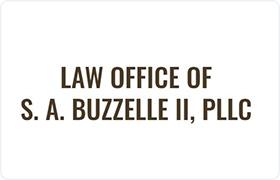Scottsdale Reorganization Lawyer, Arizona
Sponsored Law Firm
-
 x
x

Click For More Info:
-
Law Office of S.A. Buzzelle II, PLLC
14050 N 83rd Avenue Suite 290 Peoria, AZ 85381» view mapBankruptcy & Debt Law Your Trusted Bankruptcy Attorney
If you are in need of legal services for matters relating to bankruptcy and divorce, rely on Law Office of S. A. Buzzelle II, PLLC in Peoria, AZ.
800-873-4991
Robin Cochran Kruger
Elder Law, Reorganization, Commercial Real Estate
Status: Retired Licensed: 16 Years
Janet E Jackim
Commercial Real Estate, Corporate, Business, Reorganization
Status: In Good Standing Licensed: 38 Years
Tricia Schafer
Corporate, Litigation, Reorganization, Employee Rights
Status: In Good Standing Licensed: 30 Years
Khaled Tarazi
Business, Reorganization, Bankruptcy, Bankruptcy & Debt
Status: In Good Standing Licensed: 9 Years
 Stanley A. Buzzelle II Peoria, AZ
Stanley A. Buzzelle II Peoria, AZ Practice AreasExpertise
Practice AreasExpertise
